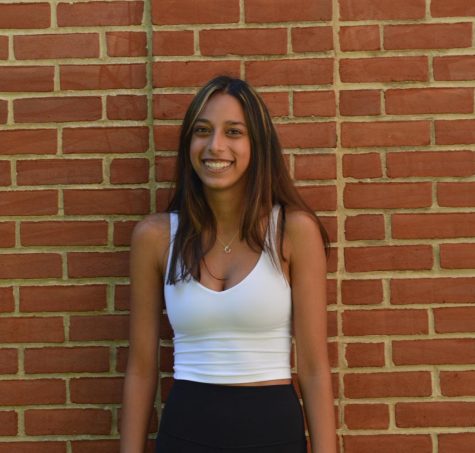Don’t let college admissions define your extracurriculars
For many MCPS students, SSL hours are not an opportunity to complete altruistic volunteer work, rather just another box to check before heading off to college.
January 24, 2021
“I’m just doing this for my college resume.”
Every time I hear a peer say this about one of their extracurricular activities, it disturbs and frustrates me. This rationale represents the end of self-expression and altruism for students. Whitman’s competitive environment pushes its students not to act for themselves, not for others, but for college admissions officers.
We can, however, reclaim our fading individualism and compassion if we put our own interests ahead of our academically competitive tendencies. We need to adopt a mindset which values extracurriculars and community service for how they make us feel, rather than how they might stand out on a resume. We should feel free to participate in activities that legitimately engage us. We should take part in volunteer work with a mindset to help others, rather than preemptively writing up an activity list for colleges to see.
Going into my freshman year, I almost joined the Whitman crew team; older students told me that it would improve my college applications. I’m neither patient nor coordinated, so I knew deep down that crew was not for me. Yet the “resume booster” status was a convincing argument, one which almost led me to register.
As a freshman, I shouldn’t have been looking at my extracurricular activities through the lens of college admissions. Unfortunately, that was a consequence of Whitman’s ultra-competitive academic environment. We closely adhere to algorithms for success rather than embracing the kind of behavior that would make us truly stand out in an application: creativity, passion and unique, defining interests.
I ended up choosing cross country over crew — I used to run with Bethesda Track in middle school and thought that it would be an easy but meaningful transition. And soon, I discovered that I truly had a passion for running. Though I likely would have been fine on the crew team, I doubt that it would have sparked the same dedication which I show for running. Crew, for me, would have simply been a checklist item for my college application; instead, cross country has given me a life-long hobby.
Like extracurricular activities, SSL hours may seem like just another box to check before graduation. While the definition of volunteering might imply that it’s “optional,” getting our 75 community service hours is a countywide mandate. This can make the service seem like a burden for some, hindering students from becoming active contributors to their community.
Knowing that we have played a role in the betterment of our community can produce a sense of achievement and improve our well-being; but for it to be effective, we must truly want to participate.
This past summer, I answered an advertisement on the 20817 listserv, a community resource, asking for volunteers to transcribe the poems and stories of incarcerated people. At first, I merely thought of the offering as a way to complete my 75 SSL hours. To my surprise, I learned — and continue to learn — cherished lessons from this experience. Reading prisoners’ perspectives and literary voices allows me to take a glimpse into their souls. Despite being unable to meet them, I feel honored to know intimate parts of their lives.
This activity has become more than a graduation requirement to me; it has evolved into a fulfilling experience, one which provides me with starkly contrasting perspectives from my own. I am forever proud to put my work into helping share the voices of people in a difficult situation.
Despite how much I enjoy my work, experiences like mine are not considered average for students looking to fulfill SSL requirements. The reality is that my peers fudge the numbers on their SSL forms. Often people boast of doing one hour and getting three or four, or getting superfluous form signatures from coaches or friends, ultimately learning nothing from their so-called “experiences.” Instead of engaging in selfless volunteer work, they walk away with another check mark in their graduation requirements.
Removing the “college lens” when looking for extracurriculars and volunteer opportunities is a far easier said than done. Yet, we shouldn’t have to sacrifice our free time to impress unknown adults years down the line. Our personalities, not our egos, should drive which extracurricular activities and service opportunities pique our interests
Completing extracurriculars is crucial in building a resume, both for college and later in life — but that should not make it our sole mission as students. We deserve to follow our passions just as much as our college aspirations, perhaps even more so. A well-rounded individual is able to enjoy their accomplishments, all while knowing they were achieved in the pursuit of self-development. We should strive to look back on these years and hear ourselves, and our peers saying: “I am doing this to learn.”










